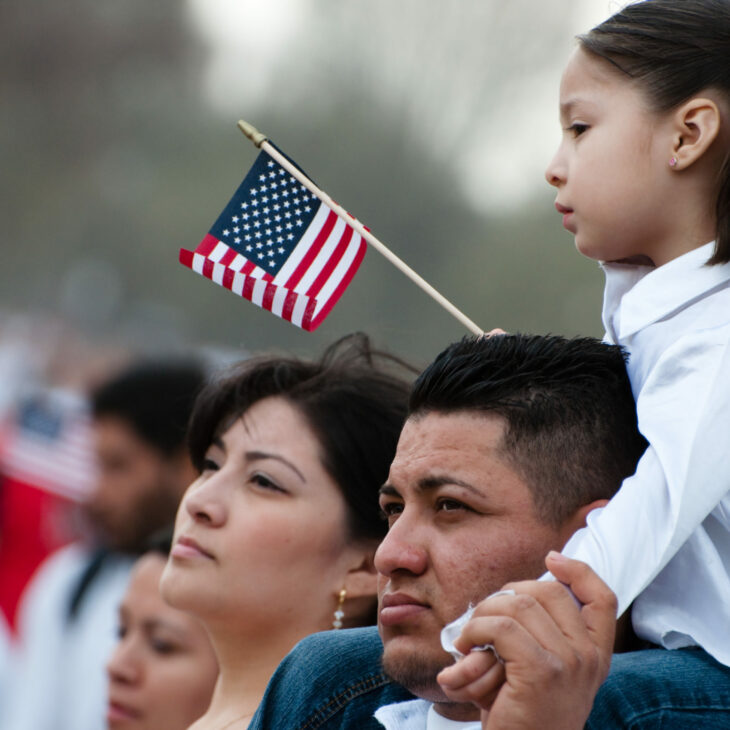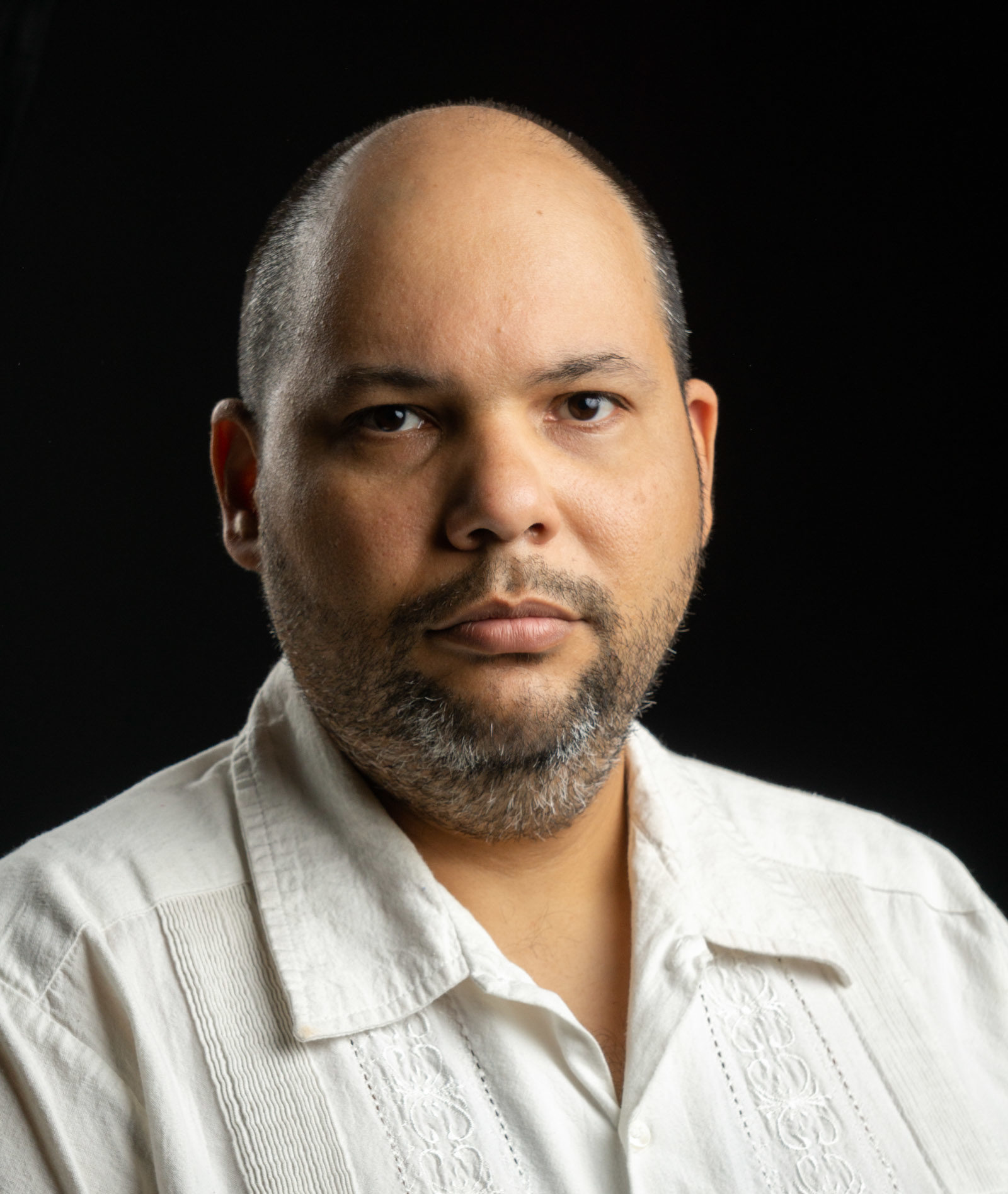Latinx Religion and Partisanship in the Post-Trump Era
August 22, 2022

It seems obvious at first glance. Several election and post-election analyses show that the Republican Party has made gains among Latinx voters and that, more specifically, Donald Trump made gains among Latinx voters in 2020. The Latinx switch to the Republican Party conversation has reemerged on the heels of Mayra Flores, a conservative Latina, winning a House of Representatives seat in a Texas district that was a Democratic stronghold.
The phrase “winning over Latinxs,” however, gives me pause. As a demographic cohort that hails from many different roots across time and space (immigrant and U.S.-born generations, origins in various countries), it feels strange to hear “Latinxs are doing X” without nuance. Latinxs are a diverse group even when they generally support Democratic Party candidates because they have various reasons to coalesce when the options are limited in the American political landscape. We come from many places ancestrally, but that just taps the surface of our diversity: we come from different social class experiences, racialized experiences, we are immigrants and also long-time citizens. After all, the only thing Latinxs may agree on is that come decennial Census time, we mark that box that says we are of “Hispanic or Latino” origin.
Religion is another aspect of that diversity. Often Latinxs are stereotyped as being Catholic, leading to a conflation of Latinx culture and Catholicism. This conflation happens because the countries and regions of the U.S. where Latinxs trace their ancestries were colonized by Spain. In those days, Catholicism was the official state religion imposed on the indigenous residents of those territories and imported by those who moved to the “new lands” in America from Spain. Just three decades ago, the vast majority of Latinxs identified as Catholic. Today only a plurality of Latinxs are Catholic (45%), according to the Pew Research Center. Protestant and other Christian Latinxs account for 23%, while one-quarter of Latinxs identify as nonreligious. Though these groups have often supported Democratic Party candidates, Protestants tend to be the most Republican-leaning. For example, when George W. Bush reached his record support among Latinxs in his 2004 re-election bid, it was thanks to a boost among Latinx Protestants, particularly among those who identify as born-again or evangelical. Those born-again Christian Latinxs not only drive this trend toward the GOP but are almost single-handedly responsible for it.
To illustrate this change, I use two surveys by the Pew Research Center. The first one, conducted in 2014, is the Religious Landscape Survey, which includes a sample of 1,889 respondents who identify as Latinx and say they are registered to vote. The second survey is the 2021 Pew American Trends Panel Wave 84. It includes 1,384 Latinx respondents who also identify as registered voters.
The surveys show that between 2014, at the tail end of the Obama Era, and 2021, the first year of the post-Trump Era, the percentage of Latinx registered voters identifying with or leaning toward one of the two main political parties increased. Identification with Democrats increased eight percentage points (57% to 65%), while identification with Republicans increased six points from 27% to 33%.
Among Latinx Catholic and nonreligious voters, the percentage of new Democrats was higher than that of new Republicans. Among Catholics, the Democratic advantage increased from 62-24 to 71-28. Nonreligious Latinx voters trended even more Democratic, from 62% Democrat and 20% Republican in 2014 to 76-24 in 2021.
The outliers in this trend are born-again or evangelical Christian Latinxs. This group shifted from an eight percentage point Democratic advantage in identification in 2014 (46-38) to a 20 percentage point Republican advantage in 2021 (60-40). By contrast, the partisan identities of Christian Latinxs who do not identify as born-again did not drastically change: 59% identified as Democrats in 2014 and 62% in 2021; 32% were Republican in 2014 and 29% in 2021.
These trends in partisanship among Latinxs are consistent with what we saw happening between 2016 and 2020. In 2020, the number of Latinx voters and Latinx turnout increased, but the increase was for both parties. Because Latinxs represent a smaller share of the Republican base, increases in Latinx voters are more notable.
Recent events like the election of Ms. Flores tend to confirm the narrative that has been created about Latinx defections to the GOP without contextualizing the religious elements of the story. In future columns, I will take a look at how the rise of Christian nationalism and how different religious groups view their Latinx identity are reshaping the Latinx political landscape.
Share
Related Articles

Juhem Navarro-Rivera
Juhem Navarro-Rivera is a political scientist who specializes in American and comparative political behavior. Dr. Navarro-Rivera has a diverse work and research portfolio. He is currently the Political Research Director and Managing Partner at Socioanalitica Research, a consulting firm that helps organizations and businesses that are led by or that serve people of color with research and analysis tools that help them better fulfill their missions.
As a scholar, Dr. Navarro-Rivera is interested in the intersection of race, religion, and politics in the United States with a particular emphasis on the political behavior of the Nones (Americans with no religious affiliation), and the rise of Latinos with no religious affiliation. He is known as a leader in the field of secular studies with publications include many articles, book chapters, columns and research reports on issues of politics, race, and secularism in the U.S. and internationally. His research has been featured in national and international media, including The Washington Post, NBC Latino, O’Globo (Brazil), The Times (London), and Reforma (Mexico). He belongs to several scholarly organizations; serves on the editorial boards of Secularism and Nonreligion, the first academic journal dedicated to the study of secularism; and serves on the advisory board of the Yale Humanist Community in Connecticut. He holds affiliations as Senior Fellow at the Institute for Humanist Studies and as a Gratis Research Scholar at El Instituto: Institute of Latin American, Latino, and Caribbean Studies at the University of Connecticut.



